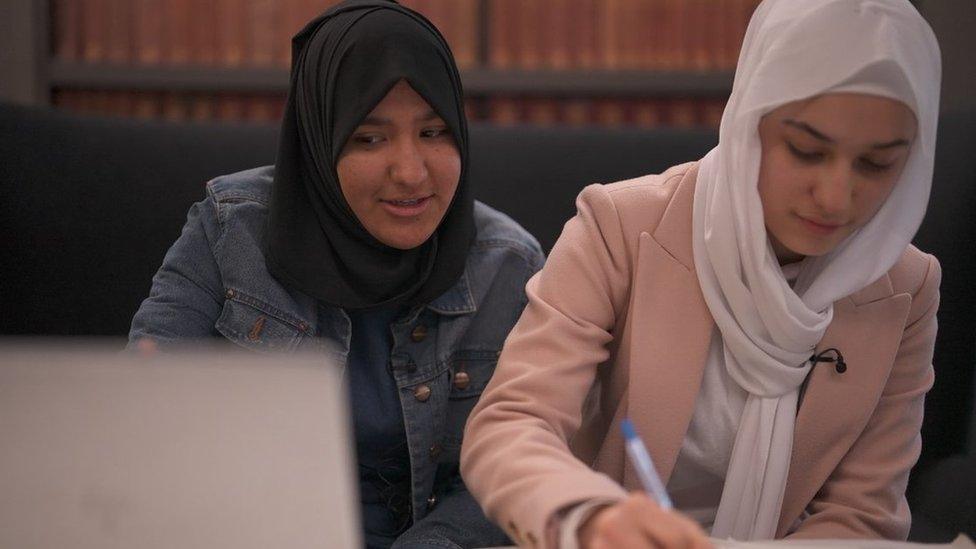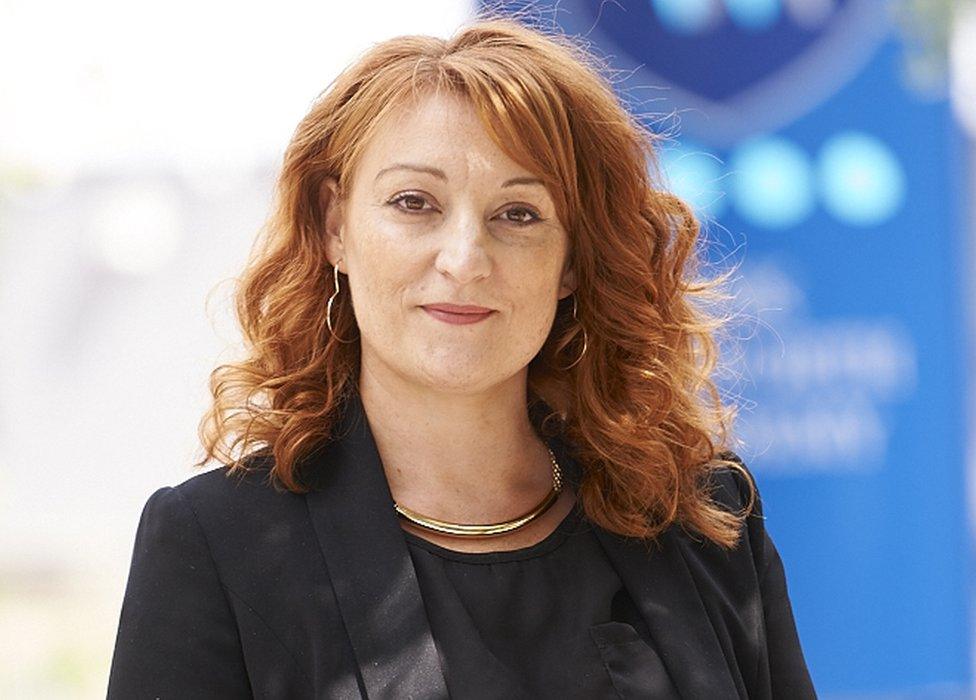Afghan refugees made to move school take UK to court
- Published

Najma and Marzia, both 15, had to leave their London school
A group of Afghan families brought to London after the Taliban took power are taking the government to court because a subsequent move north meant their children had to leave a local school during their GCSE studies.
Four families were moved from a London hotel to one in northern England.
A lack of school places near their new temporary home has since set back the teenagers' education, the families say.
The Home Office said it was trying to find permanent homes for Afghans.
Text message
In a two-day hearing at the High Court next week, the Afghans' lawyers will argue the Home Office has not addressed the impact of the hotel move on the children's schooling.
Teachers at Ark Walworth Academy, in south London, enrolled some of the children, who were living at a nearby hotel - and they had begun working towards their GCSEs.
But in August 2022, Home Office officials told the families they would be moved to new accommodation when the government stopped using the hotel to house refugees.
The Afghans were given details of their new home, which a court order prevents BBC News from locating specifically, in a text message.
One of the girls, Marzia, 15, now receives online lessons, in her hotel, from teachers at Ark Walworth Academy.
Her classmate Najma, 15, has found a school but has to repeat Year 10.
Marzia said: "They told us they were going to put us in a good school. They broke their promise. The hotel is like a jail.
"A hotel is a good place but for a holiday - not for almost two years."
Ark Walworth Academy principal Jessica West said the school had been "more than happy to provide them with an education on a temporary basis".
"What is difficult is to see them move from a situation that was precarious, that we did everything we could to try and shore up for them, to another situation that isn't permanent and is just as precarious," she added.

Ms West said the teenagers' situation was precarious
The Afghans' lawyers say the Home Office is required, under the Borders, Citizenship and Immigration Act,, external to "safeguard and promote the welfare of children" when it makes any immigration decision.
But court papers suggest the Home Office will argue a decision to move refugees between two "bridging" hotels in the UK is not an immigration decision.
The Afghan families' solicitor, Daniel Rourke, from the Public Law Project, said he was hopeful his clients would win the case and be allowed to return to south London.
"They were promised a warm welcome and it is quite chilling to now hear the home secretary argue in court that she owes no duty to have any regard to the best interests of the children that are affected by this important decision to uproot them and move them hundreds of miles to live in an airport temporarily," Mr Rourke said.
A Home Office spokesman said: "The UK is proud to have already provided homes for nearly 7,400 Afghan evacuees, through the Afghan Citizens Resettlement Scheme and Afghan Relocations and Assistance Policy. While hotels do not provide a long-term solution, they do offer adequate space and secure and clean accommodation.
"We will continue to bring down the number of people in bridging hotels, moving people into more sustainable accommodation."